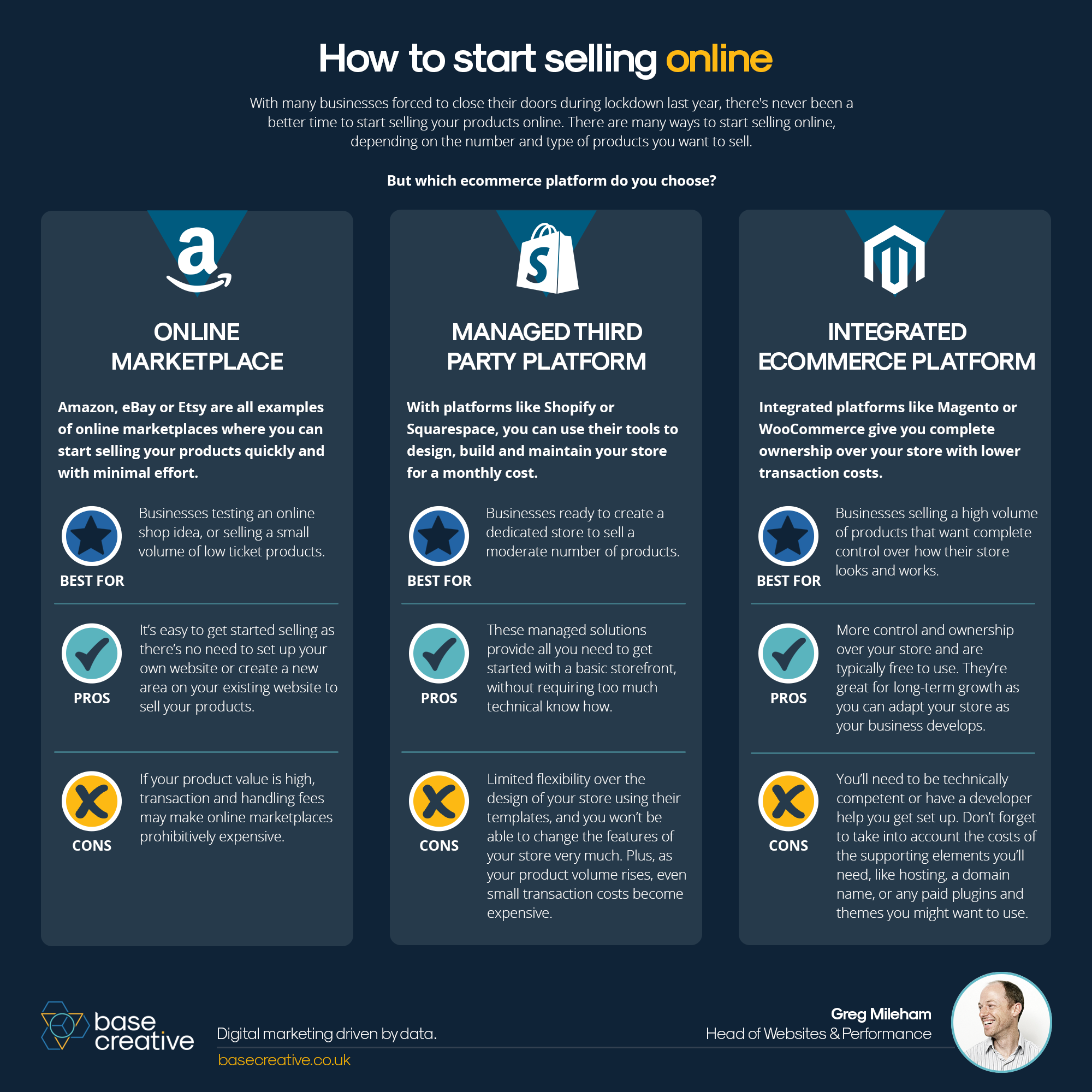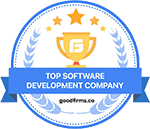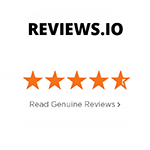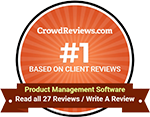TABLE OF CONTENTS
"I Knew My Store Could Do Better...
But I Didn't Know How"
That's what one of our clients, Jessica, told us. She was running a small mug store on WooCommerce—sales were okay, but stuck.
Until she discovered personalization.
Until she discovered Cmsmart.
Fast-forward 30 days:
- ✅ Her store was redesigned with AI product options
- ✅ Customers could design their own mugs with 3D preview
- ✅ AOV jumped by 42% — and she finally felt in control
Want to learn how she did it (and how you can too)?
🎓 Join our FREE 30-Day Email Course:
"Personalize, Launch & Scale – The Smart Ecommerce Way"
You'll get:
- ✔ 1 lesson a day, straight to your inbox
- ✔ Real store examples, demos & playbooks
- ✔ No tech jargon. Just strategy that works.
Join thousands of store owners learning how to scale smarter.
🎉 You're In! Thank You!
We've received your information and you're now part of our smart ecommerce journey.
Please check your inbox – your first email from the 30-Day Course is on its way!
📩 Didn't see it? Check your spam or promotions tab and mark us as safe.
We're excited to help you personalize, launch, and scale your store – the smart way.
TABLE OF CONTENTS
Related Post
Did you know that eCommerce sales are projected to reach a staggering $8 trillion by 2027? In a world where high transaction fees and limited flexibility can cripple potential...
Imagine doubling your conversion rates simply by understanding and implementing the latest trends in eCommerce - sounds exciting, right? In a 2022 report, it was highlighted that the global...
Introduction: The Power of Custom Stickers for SMEs In today’s dynamic ecommerce landscape, custom stickers have emerged as a powerful tool for small and medium-sized enterprises (SMEs) to stand out,...
Other Usefull Contents
You can see many success stories from our customers, and you may be one of them in the future












POS software is growing rapidly in recent years. More than anything, the following statistics show how this powerful point of sale technology has made the lives of grocers, retail store owners and other business owners easier and more efficient. In fact, POS software is essential for modern business. Every modern-day store, no matter if it's big or small, won't be complete without POS software
According to Grand View Research, the global point-of-sale software market size was valued at USD 11.99 billion in 2022 and is estimated to register a compound annual growth rate (CAGR) of 10.8% from 2023 to 2030.
Great point of sale software has countless benefits for businesses. It will not only help with simplifying daily business tasks and inventory management, but can also help grow the business with their built-in loyalty and marketing software, as well as providing business intelligence. If you have searched many times to know more about POS software but still have no clue what it is all about and whether you can use POS software for your business, don't worry, we are here to help. This article brings you a broad scope of what POS software is (including definition, benefits, features) and helps you choose the right one for your business. So, let’s dive into it.
1. What Is Point-of-sale (POS) Software?
Point of sale software is the software that traditional retailers use to sell directly. It can be a cash register, a computer, or a tablet where cashiers can enter products, check out and perform financial transactions. Most POS software will also sync with the inventory to keep everything in balance. In order to have a deep understanding of this solution, you can view an example: Woocommerce POS and Magento POS.
There are 2 main types of POS software: On-premise and Cloud-based.
On-Premise POS software:
Cloud-based POS software:
There are other types of POS solutions that belong to one or both of the above categories:
Mobile POS:
An MPOS (mobile point of sale) is a smartphone, tablet, or specialized wireless device that performs the functions of a cash register or electronic point of sale terminal. Any smartphone or tablet can be converted to mPOS with a downloadable mobile app.
The use of mPOS enhances the customer experience by increasing service speed and waiting times. A mobile POS also offers multiple payment options.
mPOS is an ideal for businesses that are frequently mobile like home and repair services, market vendors, food trucks, sports venues, pop-up shops.
Tablets:
These POS systems run on tablets like Android or iPad, acting as a primary or complementary POS to your central POS. This is also an mPOS.
Tablets are ideal for businesses that sell products with lots of details, features and cases like self-service options, event sales and pop-up shops.
Desktop:
POS systems that run on a desktop are typically on-premises solutions that are attached to a payment terminal. This is the main POS station in a permanent traditional store, and businesses will likely want to add mPOS in addition to the desktop setup.
This is ideal for food-based businesses helping business owners to reduce lines and wait times.
POS apps:
POS apps work with your hardware and other compatible devices to let you access data and manage your business operations.
The POS app is designed best for businesses that want flexibility and customization without needing much technical resources or budget.
Open-source POS:
Point-of-sale open source software is computer software whose source code is freely available in the form of text. In this case, the source code is a license that is publicly disclosed by the copyright owner. That way, everyone can edit or change the source code and distribute the update. That means, it allows companies to use their source code to build custom solutions with their platform. One study found that open source point of sale software can save $60 billion per year. What a great gift for a business owner!
Multichannel POS:
Omnichannel POS systems give business owners the ability to sell in-store, online, and on the go — all from one centralized program. An omnichannel POS can integrate with many different commerce channels, an increasingly important ability to help you reach the maximum of your potential customers. It includes your own point of sale website, third-party online marketplace, your store, pop-up store, event sale, wholesale, social media, and more.
Best for: Ecommerce sellers who plan to sell in-person; omnichannel online brand.
Retail POS
Retail POS is designed with brick-and-mortar stores in mind with features like inventory management, forecasting, and omnichannel selling. It is suitable for Pop-up stores, brick-and-mortar stores in a traditional retail environment.
Restaurant POS
A restaurant POS not only works to handle the workflow and transactions for a food and beverage business, but also possesses many capabilities such as menu planning and costing, ingredient-level tracking, dish customizations, and self-serve ordering.
This point of sale software was born out of the desire to meet restaurant based businesses needs.
2. Why Do You Need POS Solution?
So, if you are wondering whether your business needs a POS solution or not, here are top 7 reasons why you should use it for your business. Let’s check it out:
Save Time And Money With Your All-In-One POS Solution
Time and money management is a daunting but crucial issue for any business. Business owners who want to save time and effort in running their business, and all in one POS software will help you do that.
For reasons:
Run Your Business From Anywhere With A Cloud-Based POS System
Cloud-based POS system that stores data on the internet. That means you can access your data anytime, anywhere, helping you run your business with ease, especially when you are on the go alot and don't always have time to go to the store to check everything.
Manage Inventory Better
All business data information, including sales, customer information, employees, amount of inventory, will be stored in a single place. Easily and quickly track which products you've sold, how many products are there in the warehouse, which products are best-selling and, importantly, how much your store earned daily, monthly or annually.
These precise numbers and data will help you make smart business decisions that help increase sales and profits.
Manage Staff Better
Managing staff effectively can be considered a difficult challenge for most businesses. However, a smart POS software will help you with that through its employee management feature.
You can easily manage employee information, track the number of hours worked by each employee, track the amount of revenue each employee generates and compare. From there, easily identify and reward the best performers to motivate your entire team to do better.
Better Customer Experience And Loyalty
If you are running a retail business, customer experience might be the first concern. Positive customer experience is a critical part that can lead to business success and satisfied customers convert to be loyal ones who help in boosting revenue.
So, how does a POS software help you boost your retail business? Because it helps you complete the process checkout faster. If you have a POS software, you can use tablets, laptops or even smartphones to complete the transactions anywhere in your store.
You can leverage your POS to provide related products via cross-selling features. This feature allows you to offer items that are related to the item the customer is buying. For example, if a customer buys a cat house, that means maybe the customer owns a cat and your staff can offer him cat food products that are on sale.
It may take a lot of effort to provide the best customer experience, but it's worth it. Because for this reason: Acquiring a new customer costs 7 times more than maintaining an existing one. Therefore, creating a good experience will delight your customers and ensure that they will continue to do business with you in the future.
Easy Payment Method
Nowadays, technology is evolving day by day and so does the payment method. Carrying cash around has become outdated. Instead, customers prefer to go cashless and make payment online using debit cards, e-wallets, UPI, etc.
Using advanced POS software helps you bring convenience and ease to customers in the payment process. In addition, it saves customers' valuable time and online payment brings peace of mind and can increase the reputation of the business.
Now you have explored the benefits of POS software, so the question is what are the must-have features for a powerful POS software that can accommodate your needs? Keep reading.
3. What Are The Outstanding Features Of POS Software?
If you are choosing a POS software for the first time, start making a list of the features you must have for your business. Alternatively, you can seek advice from fellow business owners who are operating in a similar space or contact us for more detailed advice on product features.
Team Management
You may be surprised to learn that POS software can help you manage your employees. This software allows you to manage employees by tracking working hours and sales performance if applicable. You can also schedule employee shifts, track the hours they work, and generate reports detailing their performance.
This helps you figure out who your best employees are and train those who need help. In addition, this software also allows setting custom permissions for managers and employees. You can completely control who can access to your POS backend and who can access to your POS front end to avoid cheating in sales process.
Customer Relationship Management
Strong customer relationships are essential to business success. According to Gartner Group, 80% of your future profits will come from only 20% of your current customers.
A powerful POS software should have a customer relationship management (CRM) feature to track all customer data. Your POS CRM database lets you to create a profile for each customer, you can easily track your customer's payment information, payment history, what their favorite products are to provide the best and most relevant personalized experience for your customers.
In addition, customer data is very useful for advertising because it can provide insights into which customers will be interested in your sales. Using email addresses, phone number and purchase history collected by the software, you can set up specific and targeted offers to encourage customers to keep shopping with you.
Loyalty Programs
83% of consumers say that they are more likely to buy a product from a business with a loyalty program.
Combining with a CRM database, loyalty programs allow retailers to capture a customer's purchase history and market them with relevant offers via email, social media or any other communication channel.
You can also leverage this data to motivate and reward your loyal customers with things like loyalty or referral programmers to keep them coming back. Keep in mind that increasing customer retention rates by 5% increases profits by 25-95%.
Inventory Management
Inventory management is one of the most important functions of POS software. As the name implies, inventory management keeps track of all products so you know when to order/or not order specific products.
The cloud-based point of sale software allows you to manage your inventory in real-time and know how many items you own in a given period of time. Once you receive your order, you have to scan or enter your items and everything will be saved in the software. This makes it easy for you to know how much of the goods you have with the actual quantity you own, which helps to avoid discrepancies due to loss, theft, etc.
Some systems include ordering and supplier management features to simplify reordering. A good point-of-sale inventory system helps keep your business well-stocked.
4. Signs It’s Time To Switch Your POS
Maybe you have been using your POS software for a while, it is good enough but you are still doubting that there is still better software out there for you that will help you solve more problems for your business. Believe it or not, many pos solutions have the power to hold you back from providing efficient service, managing smart teams and making accurate decisions, and more.
So, here are some signs it may be time to switch your POS.
Your POS Software Is Not Helping To Optimize Inventory Management
In fact, POS solutions are configured with inventory management features that help you ensure that you are stocked with exactly what you need. If inventory management is struggling and doesn't sync automatically, it's time to move on.
To ensure the new POS software meets your inventory needs, you should ask POS provider:
Your POS Solution Doesn’t Provide Enough Payment Options
Does your current POS solution offer all the payment options that today's diners want? If you don't offer a full range of payment options, customers will be frustrated when your store isn't up to date with the latest technologies. Integrate credit card payment, online payment and cash payment. Besides, is your payment feature often late causing customers to wait a long time? If yes, it's time to switch new POS software.
To ensure the new POS software meets your payment needs, you should ask POS provider:
No mPOS Option
If POS solution provider don’t offer mPOS option, it’s better to switch to another POS software. Nowadays, a modern POS software is mobile and can help servers give more customize and better services. Besides, by using this software, this type of order taking can lead to better accuracy and immediate communication with the kitchen, as the server can confirm with the diners at this point.
To ensure the new POS software meets your mobile needs, you should ask POS provider:
Your Point Of Sale Software Doesn’t Help Schedule And Manage Staff
A POS system plays an important role in employee management, including scheduling work, tracking employee hours, helping you calculate employee wages, and tracking employee performance.
These questions below will help you ensure whether new POS provider can help you maximize your team:
● Does your software have scheduling and employee management feature?
● Is your POS software can help me track employee activity and help manage payroll details by providing staff reporting feature?
Your POS System Lacks Reporting And Analytics Capabilities
If your current POS software does not provide detailed reports and analytics that help you determine your Profit Margin and Cost Of Goods, Sales Reports, Employee Performance, … you should definitely move on.
● What types of reports are included in the software? Can you provide details on the reporting functions that your solution provides?
● Whether I have the ability to access to my reports from different types of devices?
Your POS System Isn’t In The Cloud
If your solution is still not cloud-based, you maybe want to move on. Because when a traditional POS system crashes, you run the risk of losing all your data without a backup. However, with cloud-based POS stores data on the internet, so it's always there when you need it no matter what happens to the hardware.
Here are some questions you can ask POS provider:
Your POS Has No CRM Function
Finding customers for your business has never been easy. And once you've found them, there's another challenge waiting for you: how to establish and maintain customer relationships with them. The more information you know about your customers, the stronger your relationship with them will be. With CRM software, it will help you optimize customer relationship management. You can completely build a loyalty program to reward your often loyal customers and boost their excitement every time they visit.
However, if your current POS software doesn't help you do that, you should consider a new POS provider who will help you create a CRM program just in an eye of blink.
Here are some questions help you ensure your customers will come back:
Your Point Of Sale Software Is Not User-Friendly And Simple To Navigate
Does your software have so many cool features that it's not easy for you and your staff to use them? Sometimes, some features are not really needed? If you and your staff are taking too long to learn each feature one by one, it may be time to find a new direction for yourself.
There are many other POS software that are easy to use and still meet your needs.
Here are some questions you can ask POS provider to get an easy-to-use software:
5. The Importance Of Choosing The Right POS System
Choosing a POS system can have a positive or negative impact on your business. That is why you need to take the time to research and identify the important and necessary factors in a POS system for your business. Researching and finding the right POS software requires a lot of research but your return on investment is worth it if you find the right software. Choosing the right and powerful software will help you create a fresh and possibly unforgettable experience for your customers.
Operation Business
When you choose the right POS system for your business, managing your business takes less time and more efficiently, leaving you time to focus on growth, strategy, and innovation.
Financial Health
When you choose a great point of sale software, you not only streamline your business, but also benefit your financial health. Top-notch security and PCI compliance are built right into your device so you don't have to worry about chargebacks and fraud. Besides, some advanced POS system now also integrate rapid deposit service or advance your own sales which can help you a lot.
Customer Engagement
If you choose a POS system with feature like built-in customer engagement, you will have the ability to connect with your customers, expand your customer base, and increase loyalty. Besides, you can easily send targeted and limited promotions to individual customers.
6. What Is The Best POS Software For A Small Business?
Are you looking for the best online POS software for your business? Here are Top 5 Online POS Software that helps you sell and manage your retail store with an affordable price. Let’s take a look:
1. Lightspeed Retail – Ideal for Large Inventories
Best for: Fast-growing retailers with complex inventory needs.
Lightspeed offers advanced e-commerce and inventory management capabilities. With its powerful inventory engine, retailers can automate daily tasks and focus on scaling their business. It also supports customization and bulk item management, plus loyalty functionality for tracking customer data and specialized discounts.
2. Shift4 (Revel Systems) – Best for Larger Businesses
Best for: Multi-location retailers, restaurants, and cafes.
Revel is a hybrid POS system combining cloud and local networks for seamless operation even during outages. It features centralized management, powerful CRM tools, and robust reporting capabilities tailored for food and beverage businesses.
3. QuickBooks Point of Sale – All-in-One Solution
Best for: Retail stores requiring integrated inventory and accounting.
QuickBooks POS offers payment processing, returns management, and customer tracking. It integrates seamlessly with QuickBooks accounting software, making it a strong choice for small retail businesses.
4. Shopify – Perfect for Retail and E-commerce
Best for: Businesses blending physical and online sales.
Shopify’s POS integrates seamlessly with its e-commerce platform, offering real-time inventory updates across locations. It supports omnichannel retailing, loyalty programs, and detailed reporting.
5. Square – Best Free POS Software
Best for: Mobile businesses and startups.
Square is an accessible, easy-to-use POS system offering strong features like inventory tracking, sales reporting, and customer data management. It’s ideal for small businesses needing a low-cost solution.
7. How To Buy Your POS Software
Ask Your Network
The best place to start is to first ask someone you know and trust. You can ask an experienced employee who knows a lot of details about your business and knows what your business needs? Or you can ask someone with a lot of experience with POS software, they can point you in the right direction so you can get started.
Check Review Sites
You should definitely check out a few review sites. Checking user’s reviews, the problems they are facing are also likely to be future problems you will encounter when using a certain vendor's point of sale software. Check to see if the vendor is addressing the issues that users respond to or they are abdicating responsibility and leaving the user alone. Surely you wouldn't want to have that problem, would you?
If you are looking for a few review sites, here are some representative ones you can glance at:
Get A Demo
Let’s try the DEMO to see if it meets your business needs.
See it in the real world
Let's go shopping! But not to buy, but to go to some retail store to see how the POS system works. You can also chat with business owners to get a better understanding of the best features and characteristics of a POS system.
In Conclusion
Whether you're entering the market for your first POS system or looking to upgrade to a new system, it can be difficult to decide which will be right for your business. It all depends on the needs of your business as well as your budget. The list of software in this article are all affordable, cloud-based solutions that are easy to set up and use. If you are still not sure, you can contact us to get the best advice on the journey to finding POS software solutions.